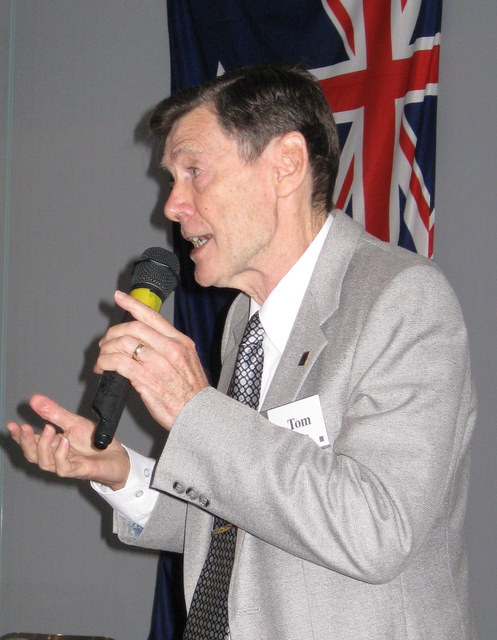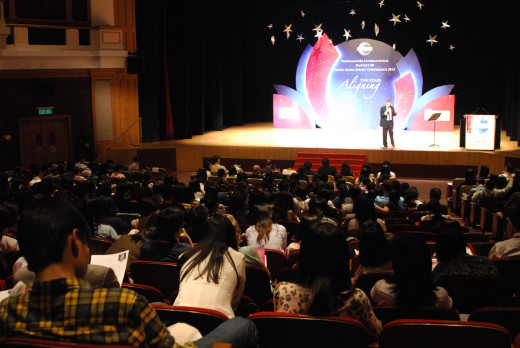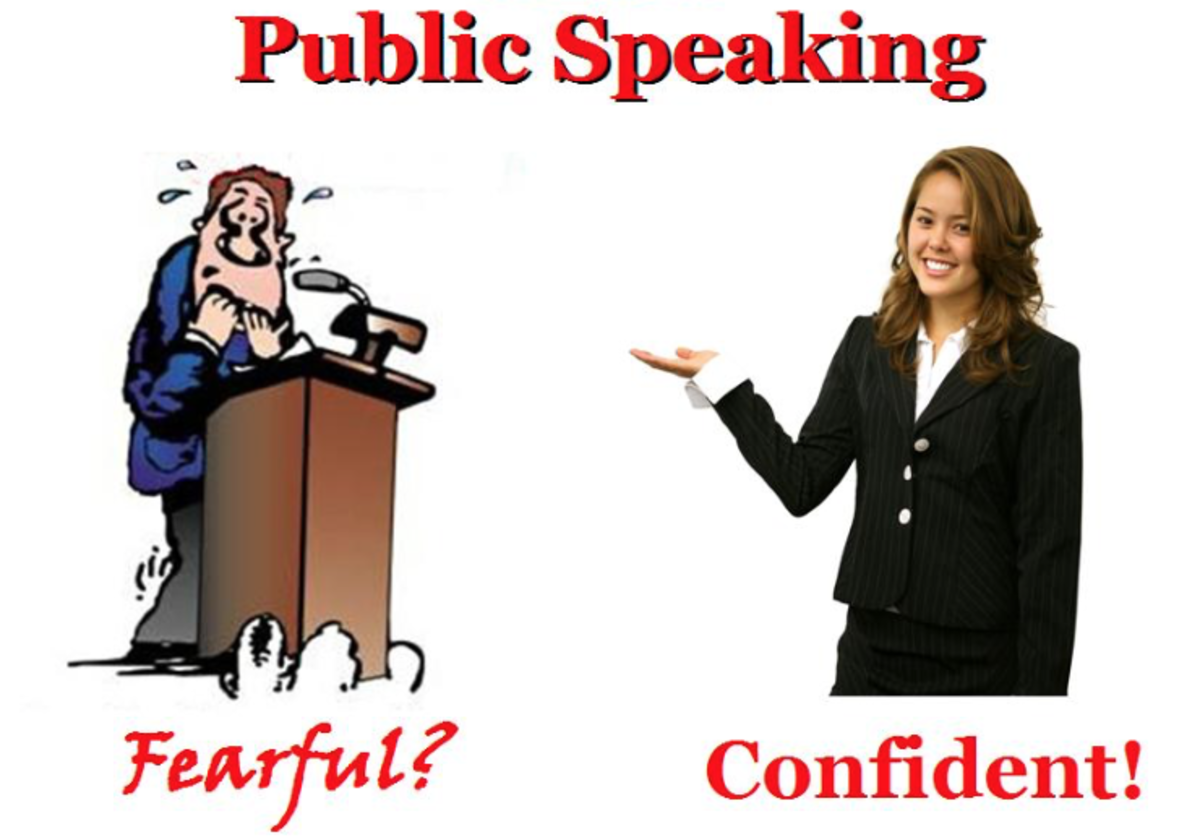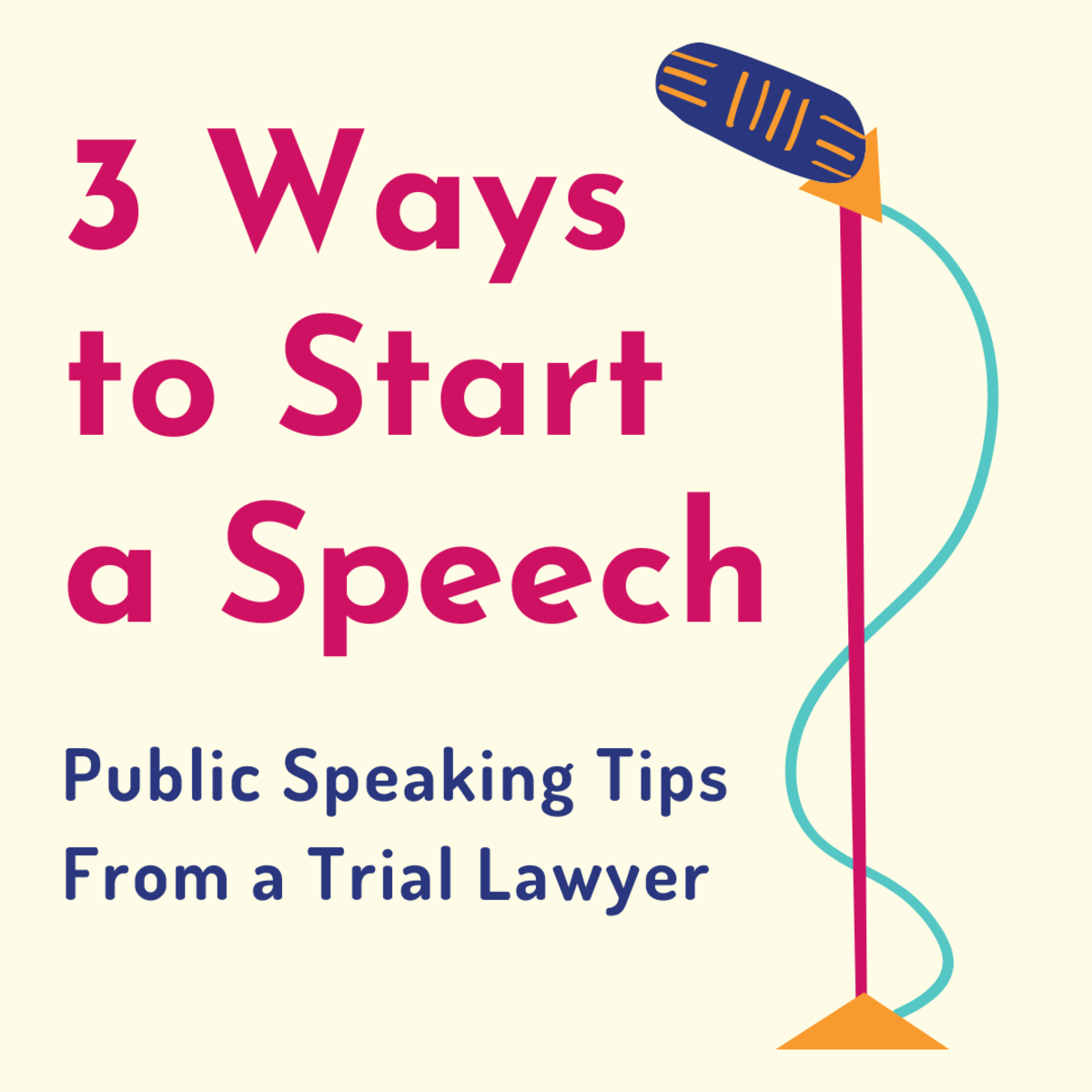Speaking Tips: Public Speaking Getting the Audience's Attention
It takes years, but it really is worth the effort
Tom in action - putting pictures in the minds of his listeners

Public Speaking and the Circle of Self-Interest
Welcome to this segment of Speaking Tips: Public Speaking Getting the Audience's Attention, and, in particular the concept of the Circle of Self Interest. Managing the getting the audience's attention is only part of it, of course. Keeping it right throughout the the presentation is the real challenge.
It is essential, when conducting a presentation of any sort where you are trying to persuade an audience that you are aware of this Circle of Self Interest. But first of all let me explain it by way of analogy.
Let us assume that you are sitting at home about to open and read your sunday newspaper. You're comfortably ensconced in your favourite chair enjoying the sunshine on your balcony. Around you birds call songfully in the trees, bees hum in a nearby flowering bush and from afar off there comes the strains of some very gentle nature music. You're lying relaxed and feeling at peace. No work today.
Then you open the newspaper and start to read...
The writer presenting an story to an audience in Hong Kong in 2015

Getting the audience's attention when it's out beyond the outer circle
Your eyes fall upon the words, "Huge explosion in outer space," followed by some astromonical data that a distant sun blew up a hundred light years ago. You take this in- and then dismiss it. It is of no consequence. That there might have been a dozen earth-type sattelites circulating the sun and a trillion sentient being might have died, doesn't even cross you mind. This piece of news was way out beyond the circle of you self interest.
Next, your read that there has been a huge earthquake in South America. It just so happens that that part of South America is thousands of miles away from where you live, and you know no one in that continent anyway. You are vaguely stirred. "Terrible tragedy" and such words cross your mind, "fourteen hundred lives lost, hundreds of thousands homeless." Still, you're not that concerned. This piece of news was right out on the periphery of your circle of self interest.
A fairly recent photo of a Master Storyteller in action

A slightly tighter circle
But what really catches your eye is the news of a bushfire raging in the very state you live. Why, it's only a couple of hundred miles away. You start to read. Still, you are not that concerned. You feel sorry for the people. No doubt a state of emergency will be declared and the public will be asked to donate to various assisting charities. Yes, you'll send a cheque for a few dollars to help out. After all they are my people.
In the above instance the Circle of Self interest is still way out there. It doesn't involve you personally.
Then you hear a knock on the door. You get up and go around the side of the house to answer it. It's Fred, the neigbour next door.
"Jack. I just saw a fellow running out of your open garage. I think he might have stolen something."
"What!"
Suddenly you are very interested. You could say that you'r rivvetted by this news.
Why?
Speaking tips: In getting the audience's attention, the circle of self interest is now very tight
Because the circle of self interest is now very tight indeed. This is your garage! You might have had something stolen - you!
Can you see what is being got at here? A trillion life forms light years away means nothing. Even 1400 killed, thousands injured and a hundred thousand homeless has less interest to you than the mere possibility that you might have lost something, had something stolen.
So what does this mean in presenting a persuasive speech?
I think it is pretty obvious. When you want to interest an audience, particularly if you want them to take some sort of action: appeal to their self-interest. Go to the very heart of their circle of self interest. Don't muck around in the outer circles. Go to the centre. Talk about their life, their family, their possessions, their future.
If your talking statistics, mention them in such a way that they indentify with those statistics. If you're talking about relationships, use relationships they can identify with. Get into their hearts as well as their minds. Affect their emotions! Get them identifying with self- their self -or at least their ego self
Do this, and you'll have them coming from the very centre of their circle of self interest. And if you can get them doing this, you'll have their attention all right - they'll be rivvetted!
So, to reiterate: In getting the audience's attention and keeping it, bear in mind always, the Circle of Self Interest and keep your own presentation aimed at their centre.
Good luck.
Tom








